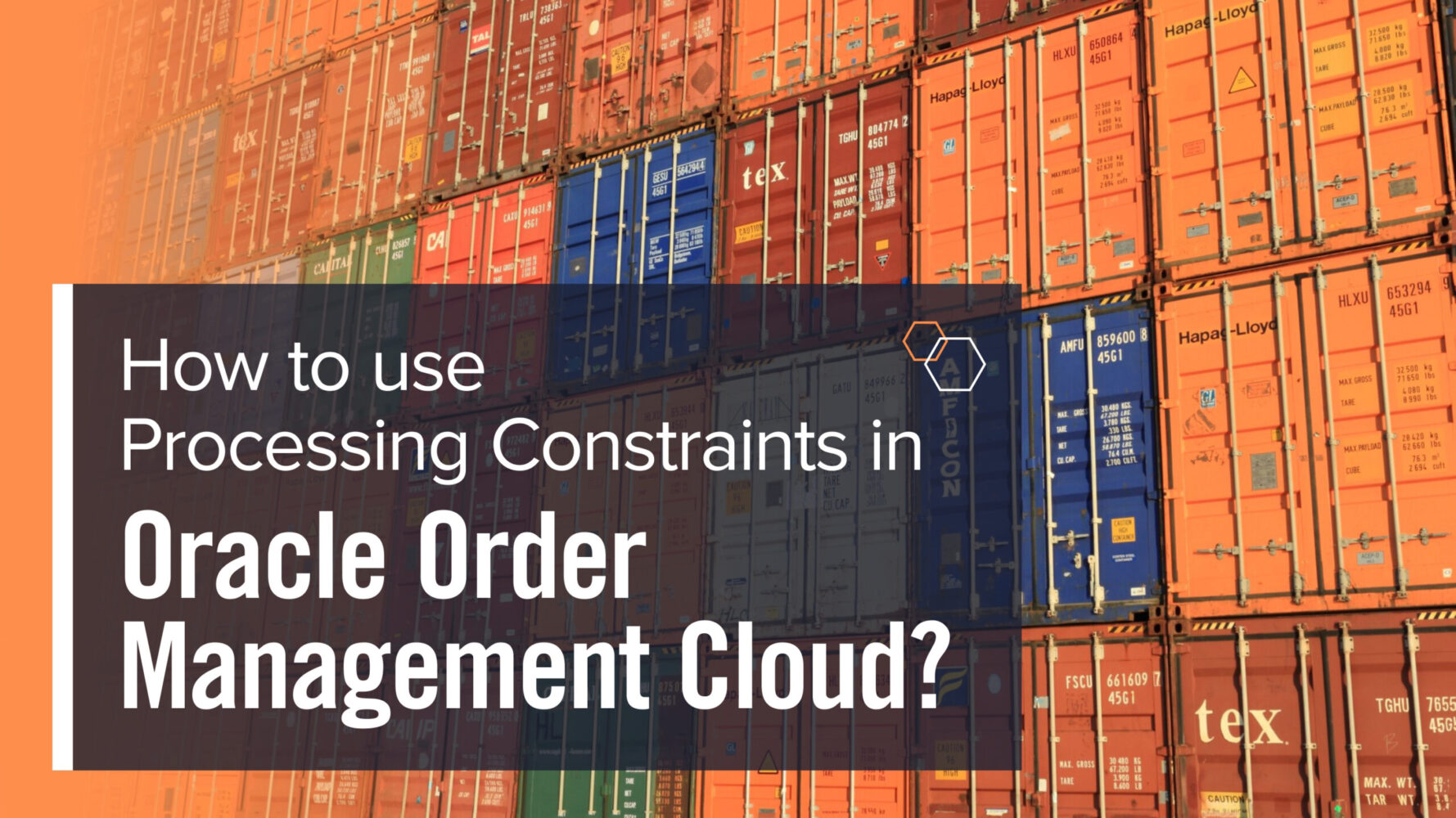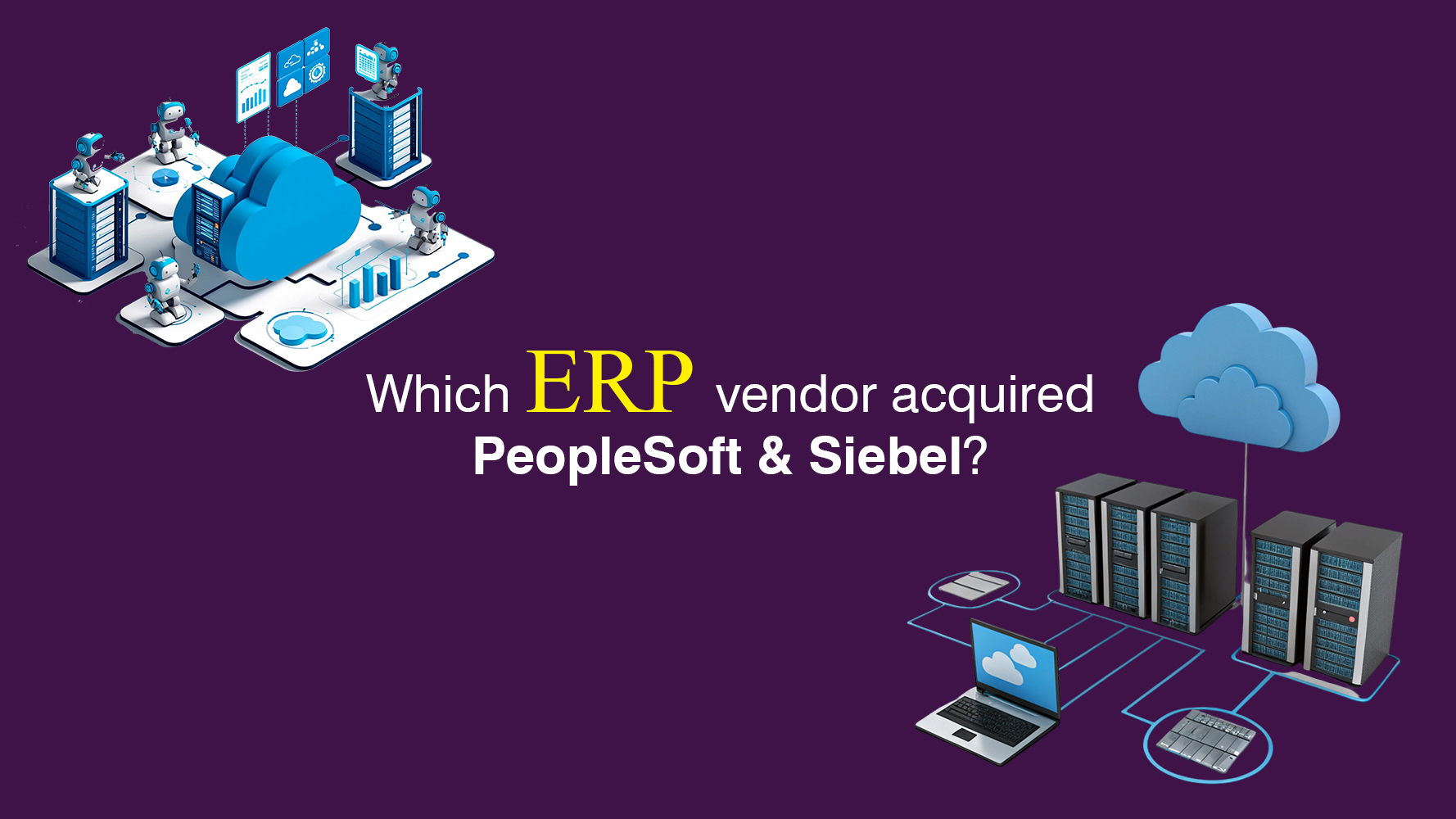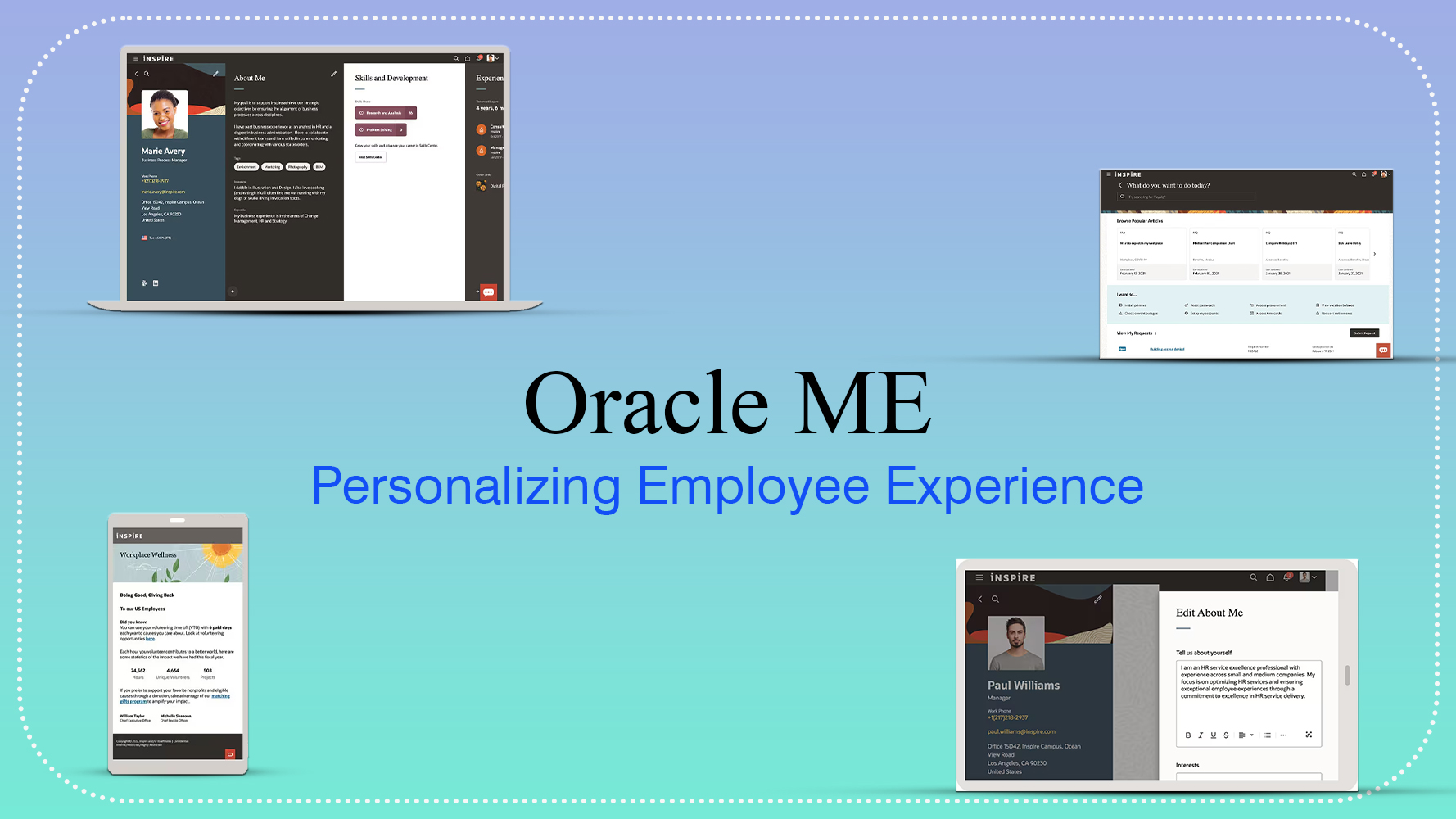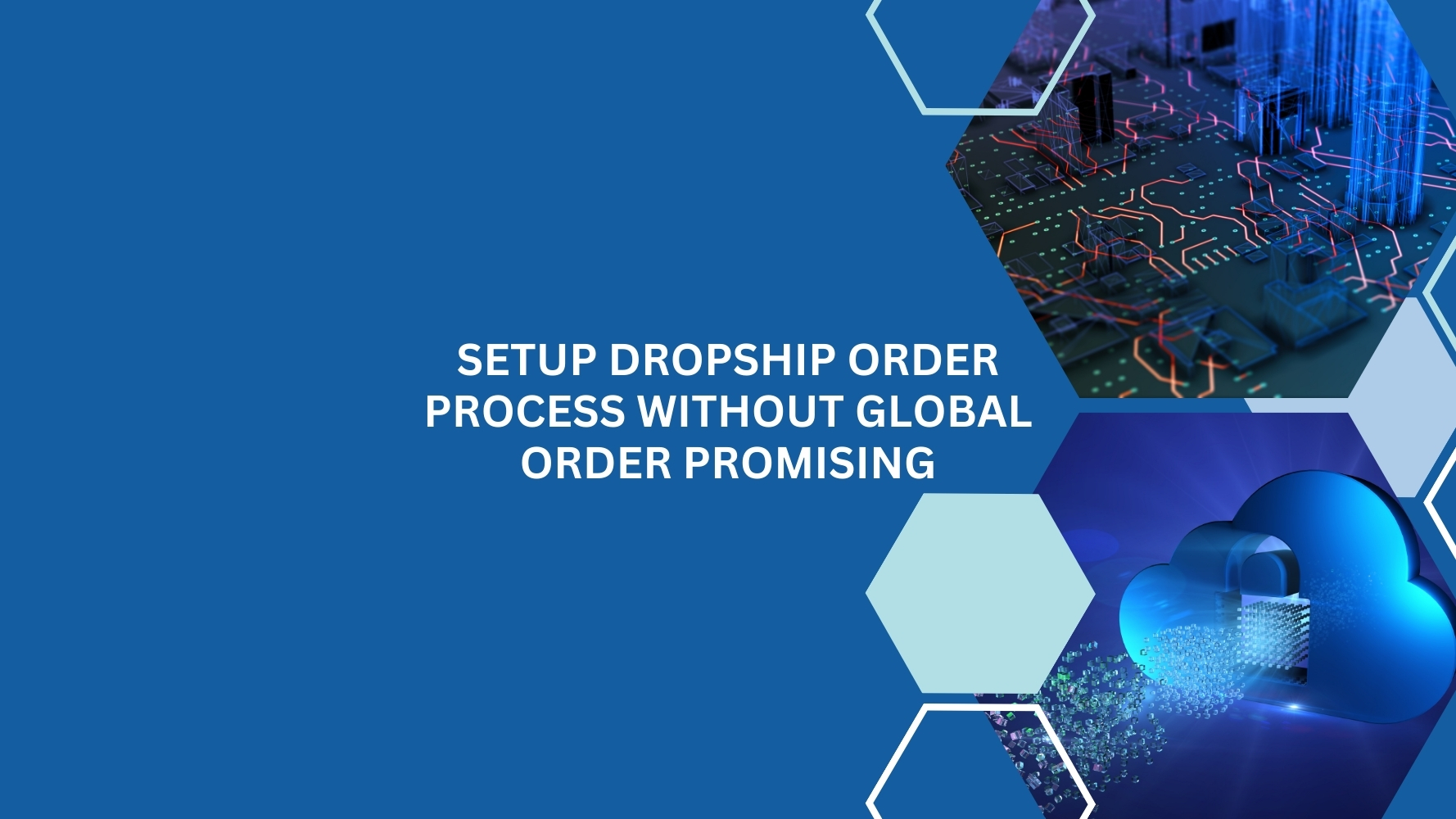Within Oracle Fusion Cloud ERP, constraints are used to implement conditions that are evaluated at runtime to prevent the user or system from carrying out actions that violate business rules. For example, change orders should not be accepted once a fulfillment line has reached the status ‘Shipped’.
There are seeded constraints and user defined constraints. The former cannot be updated by the user. Order Management uses processing constraints to enforce business rules on the processing of an orchestration order.
Configuration Steps
The following entities form the basis of the constraint framework with Oracle Fusion Cloud
Navigate to Setup and Maintenance, query and select the task – Manage Constraint Entities
- A constraint entity provides the basis for a constraint. Order Management provides two kinds of constraint entities, view entities and process task entities. View entities are based on the data model and cannot be edited. Users can add process task entities for combinations of orchestration processes, tasks, and services.
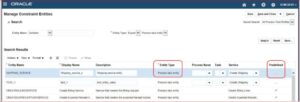
- Validation rule sets provide the conditions that are checked at runtime to identify whether the constraint should be applied.Navigate to Setup and Maintenance, query and select the task – Manage Processing Constraints
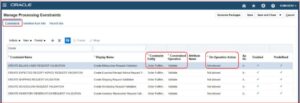
3. Record sets define the data collected to test the conditions provided by the validation rule set.

4. The process constraints tie these entities together to form the framework for enforcing the business rules.

- At runtime, if a processing constraint is violated this will be flagged as an exception message on the sales order or process, and is visible when viewing the order from the UI . The violation messages may also be queried using Search criteria as follows:Navigate to Order Management UI, select Actions -> Manage Order Orchestration Messages

Perform an Advanced Search where: Order Orchestration Function Equals Validate Processing Constraints

The search results will list any order or orchestration process that fails a processing constraint validation. Clicking on the record will reveal the specific processing constraint failure.
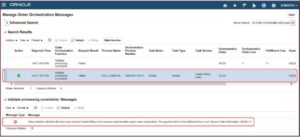
If you haven’t already used it, I hope you try this approach in Oracle Cloud ERP implementations.
Connect with Tangenz IT System Integrators, an Oracle Preferred Partner, to learn more about Oracle ERP and our implementation assistance services.
